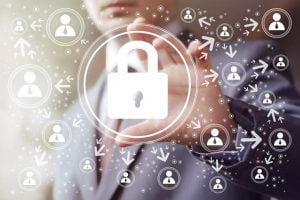Security, both online and offline, are key aspects to take care of when starting a business. No matter what form of business you operate, the information that you have on your business and about your customers need to be safeguarded.
Small businesses often do not take necessary security precautions on the mistaken belief that because they are a small operation, they will not be targeted by people who could harm their business. Nothing is further from the truth. The real key to security for small businesses is simply being vigilant and taking necessary precautions. Remember that the time and the resources you will need to spend on recovering from any type of security attack will be much more higher than taking precautions in the first place.
While protecting your data is important, so is ensuring the safety of your physical premises with security procedures, surveillance cameras and, burglary and fire protection measures, as well as adequate insurance coverage.
If you find setting up security for your business to be daunting, it is always good idea to consult a professional.
Some of the protections that you could implement to protect the digital and print information from your customers, as well as information you have on your own business include:
• Making sure that you limit the computer access your employees have to only websites and actions that are needed in order to perform the job.
• Each of your employees should be given their own usernames to use when logging on to the company’s computer system, and be reminded that will be responsible for any activity that happens when their username is logged into the system.
• Conduct regular audits of all the information and data that your employees store in their computers to reduce security risks.
• Make it a rule that all paper documents containing client or business information should be shredded on a regular basis once it is no longer needed.
• Try to set aside one computer for keeping all of your financial records and transactions. Then limit this computer to only being able to browse your banks website and to only open applications related to any record-keeping.
• Use firewalls to limit communication only to specified networks. This will stop any unauthorized access from outside the specified networks.
• Regularly update your software as it is your first line of defense against malicious activity. Make sure you have antivirus software in place and that it is updated.
• Backup all your data to an external hard-drive, a remote server, or on the cloud.
• If your business needs any type of network to support your database, email applications, and other files, then set up an online network server. You can choose from several server solutions based on the amount of storage you need, security requirements, and backup options.
• Before you even hire the first employee, establish a Code of Conduct. This document should outline what is acceptable or proper behavior within office premises and what repercussions there will be if an employee violates the terms. This document should outline the need for all employees to protect the company property and keep sensitive information safe and within company premises.
Shereen Sultan
MSc – Telecomunication Engineering

